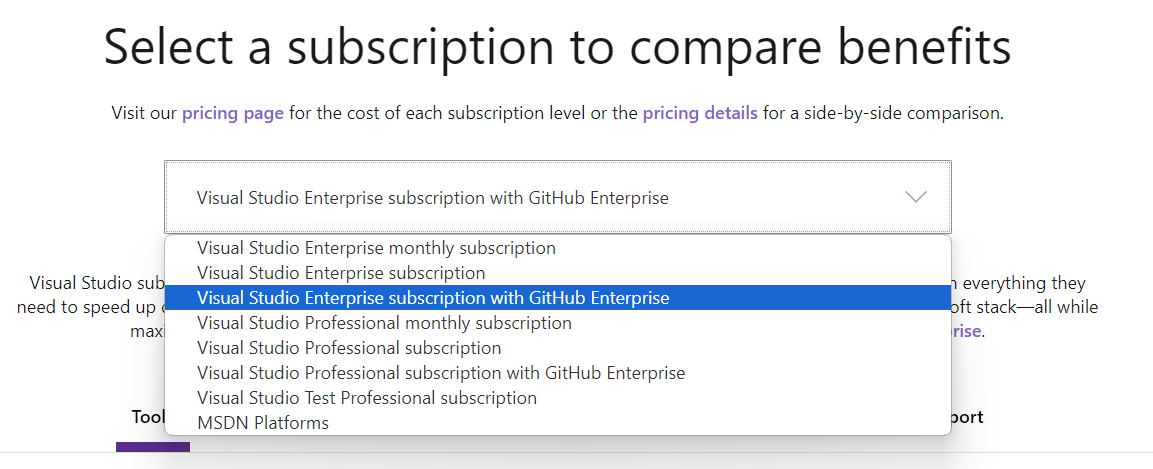Azure Dev/Test Subscription considerations
When looking at your Dev/Test workloads in Azure, you may be considering the Azure Plan for Dev/Test Enterprise subscription type, available on both the Microsoft Customer Agreement (MCA) and Enterprise Agreement (EA) billing account types.
Overview
So, let us look at what this entails...
You get Azure Plan for DevTest when you sign the Microsoft Customer Agreement. The Enterprise DevTest offer is available only to Enterprise Agreement customers, but they are essentially the same plan. The SKU value for Enterprise Dev/Test is: ms-azr-0148p and Azure Plan for Dev/Test Enterprise is: ms-azr-0148g, but as usual make sure you clarify and confirm with your direct Microsoft licensing/customer success manager, as these could change.
There are a few gotchas to using the Dev/Test Enterprise Azure Plan that you need to be aware of, but before we go into that - let us take a look at some of the benefits:
Run your development and testing workloads on Azure by using the Azure Plan for DevTest, which includes:
- Access to exclusive DevTest images in the gallery, including Windows 8.1 and Windows 10/11 images.
- Lower DevTest rates running Windows on Azure Virtual Machines, Azure App Service, Azure Cloud Services, Azure HDInsight, Azure Logic Apps, and Azure SQL Database.
- Centralized management via the Azure portal.
- The ability to create multiple subscriptions makes the plan ideal for development teams.
When looking at the DevTest plan, this particular one will catch your eye:
Lower DevTest rates running Windows on Azure Virtual Machines, Azure App Service, Azure Cloud Services, Azure HDInsight, Azure Logic Apps, and Azure SQL Database. You can save even more with reservations.
What this means is that for items like Azure Virtual Machines running Windows as an example, you won't be charged the OS (Operating System) license costs, so essentially the same cost as if you were running a Linux workload, the same for the SQL services. However, this is a small number of resources (in comparison to the entire set of services offered by Microsoft Azure), which covers standard services that over time can make a huge difference to the cost of running these services.
Provision fast, lean, and highly secure dev/test workloads on Azure—and realize substantial cost savings compared to your production workloads. Your dev/test discounted rates continue as long as you maintain your Visual Studio subscription.
It is worth noting that although the intended readers of this are those with MCA or Enterprise Agreements with Microsoft, for those Visual Studio subscribers, you can go down the Dev/Test subscription route with PayAsYouGo/DevTest with a credit card as well, keep in mind the considerations below.
CSP (Cloud Solution Provider) doesn't currently have a DevTest offer, but you could fall back to the Pay As You Go route.
Considerations
Now that we know some of the benefits of the DevTest plans, there are a few things to keep in mind that I have found a few people either didn't know *(and these subscriptions were deployed like candy at Halloween across organisations)*or were confused about, so let us cover it here.

I want it to be perfectly clear: if you meet the criteria to use the DevTest subscriptions, you should! But you might find you will end up with a mix of Pay As You Go and DevTest subscriptions, depending on your requirements (and that's ok!).
Remember: The Dev/Test plan is exclusively intended for developing and testing your applications.
The considerations that you need to consider when selecting a Dev/Test subscription type over a Pay As You Go are as follows:
- The Dev/Test Azure Plan doesn't contain a financially backed service-level agreement (SLA). The only exceptions are Azure DevOps, Azure Monitor and Visual Studio App Center. The entire purpose of this subscription is to give you the ability to trial and test services - and NOT run production workloads or services. This makes sense.
- Only active Visual Studio subscribers with standard subscriptions can use the Azure resources running within an Enterprise Dev/Test subscription (yes, that's right, everyone who has access to modify/create/delete resources needs to be a Visual Studio subscriber). This is the one that usually catches people out; although there are no technical guardrails preventing subscription use by unlicensed users, you still need to comply with the license agreement. Although it's worth pointing out, end users can also access the applications you build on top of the platform to provide feedback or perform acceptance tests without requiring a license.
- DevTest subscriptions are also compute quota limited, ie the compute quota restrictions are more restrictive (ie 10 cores on DevTest subscriptions vs 350 quota limit on non-devtest subscriptions).
Even though there is no SLA for any resources deployed in the subscription, Support is still available (i.e. open support tickets for resources) if a suitable support plan exists as part of your MCA or Enterprise Agreement or is purchased for that subscription.
Those are the two primary considerations that you need to consider when deciding on what subscription type to use; you will find for some teams that have relevant Visual Studio subscriptions, DevTest will work fine, but for others, Pay As You Go will be the right choice - your environment, may end up with a mix of both subscription types - make sure its clear what subscription license type it is, an example is I usually encourage subscriptions to be standing by pre-created ready to go and named something like 'PLACEHOLDER-PAYASYOUGO' or 'PLACEHOLDER-DEVTEST', although you can use Tags for this as well - the Overview pane of the Subscription resource also indicates the Subscription type.
The last thing I will cover is what Visual Studio subscribers actually mean. To do that, we will take a look at the Visual Studio subscriptions.
If you navigate down the page, you will see a dropdown list with all the Visual Studio subscription types.

If you click on the Azure tab, you will see the Azure credit (for their own non-EA or MCA subscription) and whether they are eligible as a valid Azure Dev/Test subscription user. To make it easier, here is a current table:
| Visual Studio Subscription Type | Azure Personal Credit | Valid Azure Dev/Test user |
|---|---|---|
| Visual Studio Enterprise monthly subscriptions | $0 | No |
| Visual Studio Enterprise subscription | $150 | Yes |
| Visual Studio subscriptions with GitHub Enterprise | $150 | Yes |
| Visual Studio Professional monthly subscriptions | $0 | No |
| Visual Studio Professional | $50 | Yes |
| Visual Studio Professional subscriptions with GitHub Enterprise | $50 | Yes |
| Visual Studio Test Professional subscription | $50 | Yes |
| MSDN Platforms | $100 | Yes |
Azure personal credit is in USD.
Reference
The links below are some relevant reference material for further reading.
